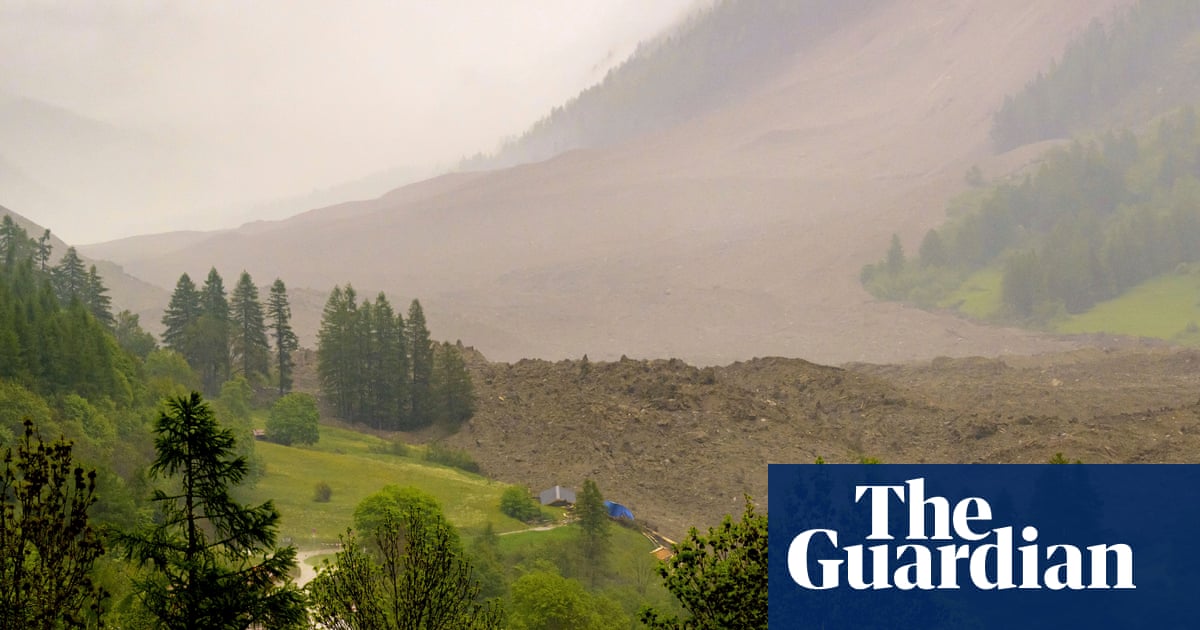The recent event in Switzerland, where a glacier collapse resulted in the destruction of a village, raises significant concerns about climate change and its immediate impacts on communities. The incident not only highlights the physical dangers posed by natural disasters but also signals broader implications for local and global responses to environmental challenges.
Purpose of Reporting
The article aims to inform the public about the immediate dangers posed by climate change, particularly focusing on the alarming rate of glacier retreat in the Swiss Alps. By detailing the destruction in Blatten, the report seeks to raise awareness of the urgent need for climate action and the potential for similar disasters in other vulnerable areas.
Public Perception
This news piece may evoke a sense of urgency and fear among the public regarding the effects of climate change. It underscores the vulnerability of communities that are directly impacted by natural disasters, potentially fostering a call for more robust environmental policies and community resilience planning.
Possible Omissions
While the report is focused on the glacier collapse, it might not delve deeply into the broader socio-economic implications or the long-term environmental changes that could stem from such events. This could lead to an incomplete understanding of the issue among the public, as the focus remains primarily on the immediate disaster rather than systemic causes.
Comparative Context
When compared to other environmental disaster reports, this article aligns with a growing trend of highlighting the human impact of climate change. There may be connections to other recent news about extreme weather events, drawing a narrative that emphasizes the increasing frequency of such occurrences due to global warming.
Media Image
The source of the news likely aims to project a responsible and informative image, focusing on environmental issues that resonate with a global audience concerned about climate change. This could bolster their credibility among readers who prioritize sustainability and ecological awareness.
Potential Impact on Society
The consequences of this event could ripple through various sectors, influencing public opinion on climate policies, impacting tourism in the region, and possibly leading to increased funding for climate resilience initiatives. It may also spark debates on the balance between environmental conservation and economic development.
Target Audiences
The report may appeal more to environmental activists, local residents concerned about their safety, and policymakers focused on climate change. It seeks to engage a community of readers who are already inclined to support environmental initiatives and policies.
Market Implications
In terms of financial markets, such news could affect sectors tied to tourism and real estate in areas prone to climate-related risks. Companies involved in climate adaptation technologies may see increased interest from investors looking to support sustainable solutions.
Geopolitical Relevance
This glacier collapse can serve as a microcosm of the larger global climate crisis, underscoring the urgent need for international cooperation to address environmental issues. It resonates with today's agenda focusing on climate action and sustainability.
AI Influence
While there is no explicit indication that artificial intelligence was used in the writing of this article, the structured presentation and data-driven nature suggest that algorithms might have been utilized to compile relevant statistics or to analyze trends in glacier retreat. AI models could have influenced the way the narrative emphasizes urgency and data, steering the audience's perception towards the scientific consensus on climate change.
Manipulative Elements
The language used in the report, while factual, could be perceived as manipulative by emphasizing the catastrophic nature of the event without equally addressing potential solutions or historical context. This could create a narrative that incites fear rather than empowering the audience with knowledge.
The reliability of the article is grounded in its factual basis, citing recent scientific observations and testimonials from emergency services. However, the selective focus on devastation without a balanced view of resilience strategies may affect how comprehensively the information is understood. Overall, the reliability can be rated as high, but the framing of the issue could be seen as somewhat biased toward an alarmist perspective.
